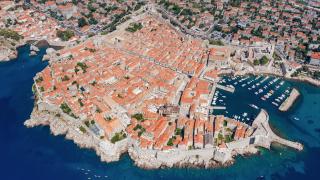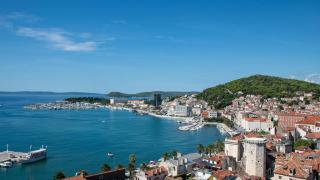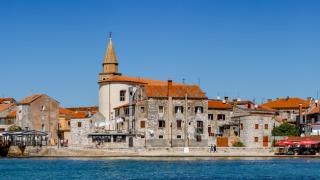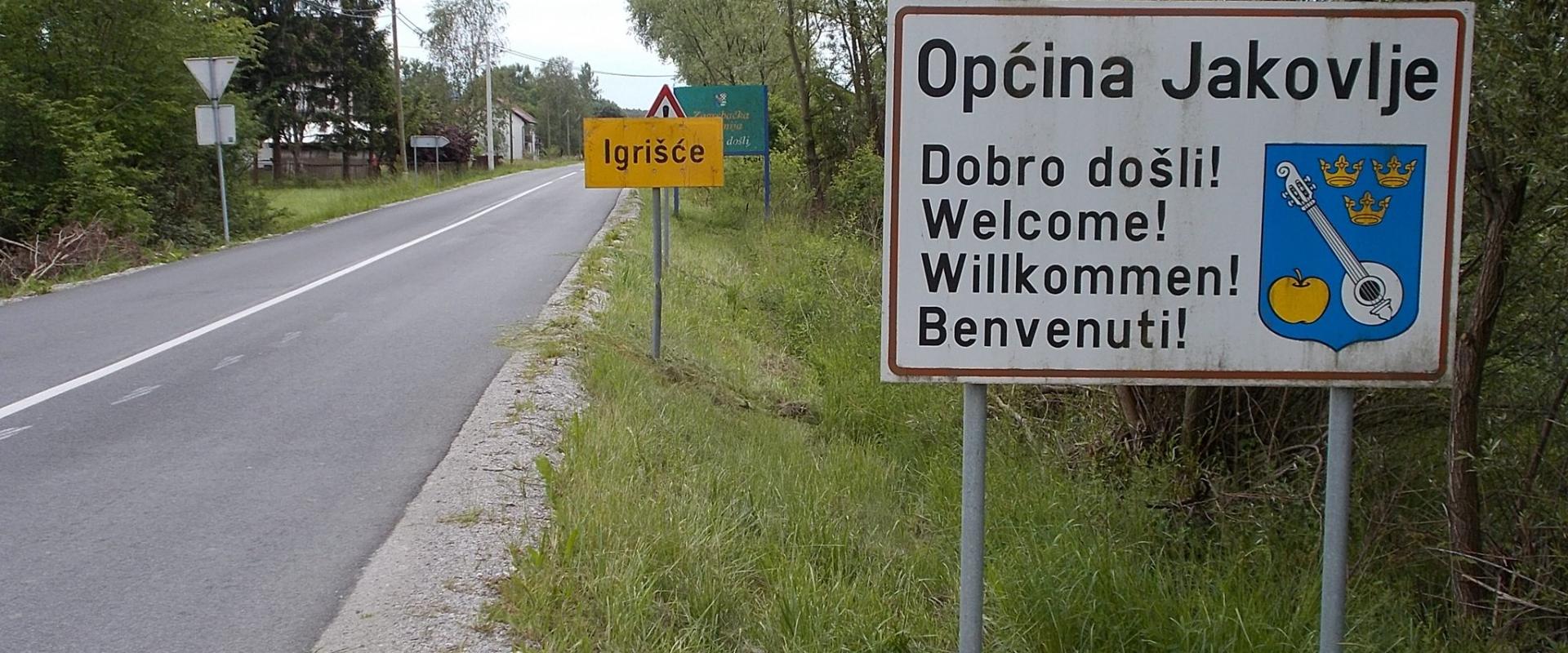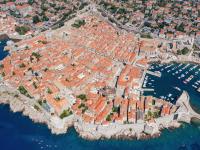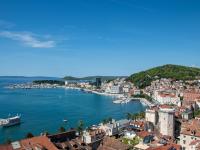Introduction
Croatian language preparation enhances any visit to Croatia, even though English is widely spoken in tourist areas. Most hospitality staff, tour guides, and younger locals communicate effectively in English. However, learning basic Croatian phrases shows respect and creates meaningful connections.
Key language expectations in Croatia:
- Tourist zones: English widely understood and spoken
- Rural areas: Less English proficiency, Croatian phrases more important
- Written signs: Dual language (Croatian/English) in most tourist areas
- Restaurant menus: Usually available in multiple languages
Making an effort with Croatian phrases brings several benefits:
- Warmer reception from locals
- Easier navigation in less touristy areas
- Better understanding of cultural nuances
- More authentic travel experience
While perfect pronunciation isn't expected, attempting basic greetings and courtesies is highly appreciated by locals.
Basic Language Overview
Croatian uses the Latin alphabet with 30 letters, including unique characters like č, ć, đ, š, and ž. Each letter consistently represents one sound, making pronunciation relatively predictable once learned.
Language Family and Classification:
- Member of South Slavic language group
- Three main dialects: Štokavian (standard), Kajkavian, and Čakavian
- Most closely related to Serbian, Bosnian, and Montenegrin
Key Differences from English:
- Seven cases for nouns and adjectives
- Gender-based word endings (masculine, feminine, neuter)
- More flexible word order than English
- No articles (a, an, the)
- Verb aspects (perfective and imperfective)
Writing System:
- Uses standard Latin script with diacritical marks
- One-to-one correspondence between letters and sounds
- Accent marks indicate specific pronunciations
- Written exactly as pronounced (phonetic writing)
Pronunciation Basics:
- Stress typically falls on the first syllable
- All letters are pronounced (no silent letters)
- Double letters are pronounced separately
- 'R' can function as a vowel in some words
Modern Croatian maintains consistent spelling rules across all regions. Standard Croatian follows guidelines set by the Institute of Croatian Language and Linguistics.
Essential Phrases
Master these essential Croatian phrases for smooth daily interactions:
Basic Greetings
- Dobar dan (doh-bar dahn) - Good day
- Dobro jutro (doh-broh yoo-troh) - Good morning
- Hvala (hva-la) - Thank you
- Molim (moh-leem) - Please/You're welcome
- Doviđenja (doh-vee-jen-yah) - Goodbye
Numbers 1-5
- Jedan, dva, tri, četiri, pet (yeh-dan, dva, tree, che-tee-ree, pet)
Restaurant & Cafe Phrases
- Račun molim (rah-choon moh-leem) - Bill please
- Još jedno pivo (yosh yed-noh pee-voh) - One more beer
- Gdje je toalet? (g-dyeh yeh toh-ah-let) - Where is the toilet?
Emergency Phrases
- Upomoć! (oo-poh-moch) - Help!
- Trebam liječnika (tre-bam lee-yech-nee-ka) - I need a doctor
- Ne razumijem (neh rah-zoo-mee-yem) - I don't understand
Pronunciation Tips
- 'J' sounds like 'y' in 'yes'
- 'C' is pronounced 'ts' as in 'cats'
- 'R' is slightly rolled
- Stress usually falls on the first syllable
Practice these phrases before your trip. Write them down in a small notebook for quick reference. Most Croatians appreciate tourists making an effort to speak their language.
Communication Tips
Body Language Basics
- Maintain moderate eye contact during conversations
- Handshakes are common for greetings
- Personal space is similar to Western European norms - about arm's length
- Head nodding means 'yes', shaking means 'no' (unlike some Balkan regions)
Cultural Communication Guidelines
- Speaking volume should be moderate - loud talking can be considered rude
- Wait for introductions before using first names
- Address older people and professionals with formal titles
- Allow for brief pauses between speakers - interrupting is discouraged
Common Misunderstandings
- 'How are you?' (Kako ste?) requires a genuine response, not just 'fine'
- Don't assume everyone understands English, especially in rural areas
- Croatian pronunciation is exact - small sound differences can change meanings
- Regional dialects vary significantly between coastal and inland areas
Translation App Tips
- Download Google Translate Croatian language pack for offline use
- Use camera translation for menus and signs
- Test pronunciations with audio feature before speaking
- Cross-reference translations with multiple apps for accuracy
Digital Communication
- Free Wi-Fi is common in urban areas for translation needs
- Local SIM cards cost 50-100 kuna for basic data plans
- Popular messaging apps: WhatsApp, Viber
- Save emergency numbers in your phone: 112 (general), 194 (ambulance)
Regional Variations
Language variations across Croatia reflect distinct regional identities and historical influences:
Coastal (Dalmatian) Dialect
- Strong Italian influence in vocabulary and pronunciation
- Common use of 'ča' instead of 'što' for 'what'
- More relaxed pronunciation of certain consonants
- Frequent use of Italian-derived words in restaurant and maritime contexts
Inland (Kajkavian) Dialect
- Germanic and Hungarian influences more prominent
- 'Kaj' used instead of 'što' for 'what'
- Distinct accent patterns and vocabulary variations
Tourist Area Adaptations
- Simplified Croatian commonly used in tourist zones
- Multi-language menus and signs in major destinations
- English-Croatian hybrid phrases in popular tourist spots
- Staff often switch between multiple language variants
Local Slang Considerations
- Each region has unique informal expressions
- Coastal areas use maritime-influenced slang
- Zagreb has its own urban vocabulary
- Tourist areas develop specific service-oriented expressions
Most language learning materials focus on standard Croatian, but awareness of regional variations helps with local communication.
Conclusion
Learning basic Croatian phrases significantly enhances travel experiences, despite widespread English usage. Focus on mastering 10-15 essential greetings and courtesy phrases for daily interactions.
Key Recommendations:
- Practice pronunciation with native audio resources before traveling
- Download offline language apps like Croatian by Nemo or Simply Learn Croatian
- Keep a digital phrasebook on your phone for quick reference
- Start with simple greetings and gradually expand your vocabulary
Additional Resources:
- Free Croatian language courses on Duolingo and Memrise
- Croatian Language School's YouTube channel for pronunciation guides
- Local language exchange meetups in major cities
Final Tips:
- Begin learning at least 2-3 weeks before travel
- Focus on practical phrases rather than perfect grammar
- Show confidence when attempting Croatian - locals appreciate the effort
